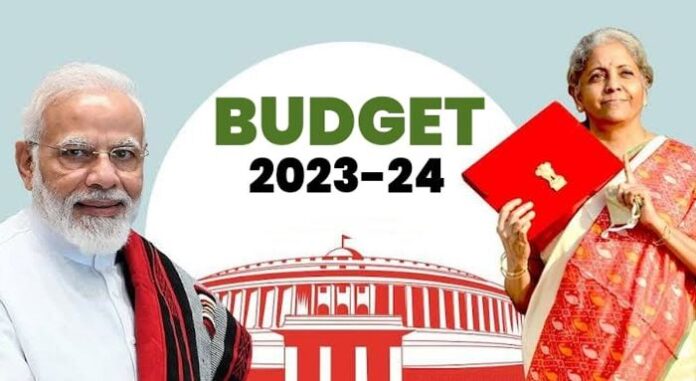Mr. Siddharth Khanna, MD and CEO at Tescon Green.
Union Finance minister Nirmala Sitharaman has announced a budget by increasing the capital investment outlay by 33 per cent to Rs 10 lakh crore. This is positive news for the real estate sector, which is currently facing the challenge from rising inflation, higher commodity prices and increase in interest rates. Besides, the announcement of increasing the outlay for PM Awaas Yojana by 66 percent to over Rs 79,000 crore will give the much needed boost to affordable housing, thus fulfilling Prime Minister Narendra Modi’s vision of Housing for All. Similarly, the decision to spend Rs 10,000 crore per year for urban infrastructure development fund will help in improving the quality of life of people. On a whole, the Budget is expected to give a boost to the sector.
Dr. Mohit Ramsinghani – Chief of Sales – Runwal Group.
The decision to increase the income tax rebate to 7 is a positive news as it will eventually strengthen the purchasing power of consumers creating more demand for homes in the coming future. The enhancement of Pradhan Mantri Awas Yojana to over INR 79,000 crore will likely help the government achieve its goal of providing affordable housing to more people and contribute to the overall growth and development of the country. The initiative to undertake planning and transformation into sustainable cities will create opportunities for all. The creation of Urban Infrastructure Development Fund (UIDF) of INR Rs 10,000 crore per year will boost infrastructure in Tier 2 and Tier 3 cities creating opportunities for real estate players to develop lifestyle communities in these cities, leading to growth & price appreciation of Real Estate. The initiative to establish an infrastructure finance secretariat will attract and create more private investments in infrastructure & reduce dependency on public money.
Mr. Ashish Narain Agarwal, Founder and CEO at PropertyPistol.com
It is a great move that personal income tax rebate is increased upto INR 7 lakhs which will gradually strengthen the purchasing power of consumers and hence we can predict a growing demand for homes in the near future. The finance minister chose to focus on upgrading the funding towards the ‘Housing for All’ initiative by allocating a sum total of INR 79,000 crore as against the earlier fund of INR 48,000 crore. This move will have a significant impact and help the government achieve it’s target sooner with the demand for affordable housing shooting up like never before. Sustainability and infrastructure growth are two key areas that the finance minister addressed. The states and cities have been motivated to undertake planning to transform into sustainable cities. Keeping in line with the government’s consistent efforts to boost infrastructure to promote accessibility, the Urban Infrastructure Development Fund of INR 10,000 crore per year will be set up that will be managed by National Housing Bank to create urban infrastructure for Tier 2 and 3 regions. With India getting a lot of interest from foreign investors, these measures should surely accelerate the scope and make the sector further opportunistic. There are some other crucial parameters that could also have been the key focus in this year’s budget. For instance, liquidity and stressed assets seems to be few of the key concerns amongst others affecting the sector and pertinent measures to address these would have brought a great relief.
Mr. Amit Goenka, MD and CEO at Nisus Finance.
This is a true blue Amrutkaal budget that will put more money in the hands of consumers by income tax relief and increase consumption overall and make it easier for home buyers to pay their EMIs for real estate.
The boost in incentives for the Pharma sector is likely to increase demand for Commercial Real estate and industrial land in specified chemical zones. Life sciences as an asset class is also likely to emerge stronger as an occupier of commercial real estate.
The increase in allocation by 66% to PMAY scheme is likely to revive the affordable housing market which had been suffering due to increase in interest rates and sharp increase in steel and cement prices.
The investment in capex to the tune of 4.5% of the total GDP will boost land prices as smart investors will watch infra developments especially highways, roads, and ports, especially in Tier 2 and Tier 3 markets.
The increase in capex for Railways, especially upgradation of railway stations will offer opportunities for real estate developers to partner with the government in PPP models.
Demand for warehousing space is likely to increase as consumption goes up especially in Tier 2 and Tier 3 cities. Prices for warehousing land where the agriculture and infra spending will be accelerated creating new demand for this asset class.
Capex spending on airports will also benefit landowners around these new airports as well as increase demand for retail spaces and hospitality in and around the new projects.
With further extension of tax benefits to startups, demand for coworking space is likely to increase and will filter into Tier 2 and Tier 3 markets, as Unity Malls come up across the states, which will require marketing, branding and D2C support.
Green growth initiatives should result in increased demand for space for biogas, electric vehicle charging points, and increase valuations of land around existing energy centers like petrol and CNG pumps.
Initiatives taken for GIFT city through the IFSCA is likely to increase foreign investment in Indian real estate, and one may expect a sharp increase in the prices of land in Dholera, near Ahmedabad, which is the epicenter for this concept.
The outlook for inflation is unlikely to go down anytime soon with a 5.9% fiscal deficit and hence interest rates will continue to remain high, and hence interest rates on home loans will continue to be affected.
Enhanced limits for MSME sector is likely to lead to higher demand for strata sold commercial projects especially in Tier 2 and Tier 3 markets.
The extension of Long term capital exemption limit to 10 cr is likely to further bring more legitimate transactions in to the real estate sector, and should provide some relief to real estate owners as they participate in an expanding economy.
The reduction in maximum tax rate to 39% from 42% is likely to help the luxury residential and luxury retail markets as more income becomes available to the ultra rich.
Hotels and hospitality assets are likely to come back into demand as an investment as the government encourages domestic tourism under the Apna deshdekho program.
Increase in the limits of senior citizen savings scheme to Rs 30 lakhs and increase in monthly income scheme limit to 9 lakhs should help asset classes like senior and assisted living provide a more safe and secure retired life to senior citizens.
Corporate Comm India (CCI Newswire)























